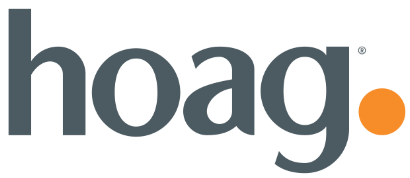| A B C D E F G H I J K L M N O P Q R S T U V W X Y Z # |
Thyroid-Stimulating Hormone (TSH), Ultrasensitive
MessageSendout, Mayo test code: STSH
Test Code
LAB234001
Alias/See Also
High Sensitivity-Thyroid Stimulating Hormone
HS-TSH (High Sensitivity Thyroid-Stimulating Hormone)
S-TSH (Sensitive-Thyroid-Stimulating Hormone)
Sensitive TSH (Thyroid-Stimulating Hormone)
Thyroid-Stimulating Hormone-Sensitive (S-TSH), Serum
Thyrotropin
TSH (Thyroid-Stimulating Hormone)-High Sensitivity
TSH Hypersensitive
TSH, 3rd Generation
TSH-ICMA
Ultra-Sensitive TSH (Thyroid Stimulating Hormone)
STSH
HS-TSH (High Sensitivity Thyroid-Stimulating Hormone)
S-TSH (Sensitive-Thyroid-Stimulating Hormone)
Sensitive TSH (Thyroid-Stimulating Hormone)
Thyroid-Stimulating Hormone-Sensitive (S-TSH), Serum
Thyrotropin
TSH (Thyroid-Stimulating Hormone)-High Sensitivity
TSH Hypersensitive
TSH, 3rd Generation
TSH-ICMA
Ultra-Sensitive TSH (Thyroid Stimulating Hormone)
STSH
CPT Codes
84443
Preferred Specimen
0.6 mL serum from a gold serum gel tube
Minimum Volume
0.5 mL
Other Acceptable Specimens
Red tube
Instructions
1. Serum gel tubes should be centrifuged within 2 hours of collection.
2. Red-top tubes should be centrifuged, and the serum aliquoted into a plastic vial within 2 hours of collection.
2. Red-top tubes should be centrifuged, and the serum aliquoted into a plastic vial within 2 hours of collection.
Transport Container
Plastic vial
Transport Temperature
Refrigerated
Specimen Stability
Refrigerated (preferred): 7 days
Frozen: 30 days
Ambient: 7 days
Frozen: 30 days
Ambient: 7 days
Reject Criteria (Eg, hemolysis? Lipemia? Thaw/Other?)
Hemolysis: Mild OK; Gross OK
Lipemia: Mild OK; Gross OK
Icterus: Mild OK; Gross OK Other: NA
Lipemia: Mild OK; Gross OK
Icterus: Mild OK; Gross OK Other: NA
Methodology
Electrochemiluminescent Immunoassay
FDA Status
Approved
Setup Schedule
Monday through Sunday
Report Available
1-2 days
Limitations
Serum biotin concentrations up to 1200 ng/mL do not interfere with this assay. Concentrations up to 1200 ng/mL may be present in specimens collected from patients taking extremely high doses of biotin up to 300 mg per day.(1) In a study among 54 healthy volunteers, supplementation with 20 mg/day biotin resulted in a maximum serum biotin concentration of 355 ng/mL 1 hour post-dose.(2)
For assays employing antibodies, the possibility exists for interference by human anti-animal antibodies (ie, heterophile antibodies) in the patient specimen. Patients who have been regularly exposed to animals or have received immunotherapy or diagnostic procedures utilizing immunoglobulins or immunoglobulin fragments may produce antibodies (eg, human antimouse antibodies) that interfere with immunoassays. This may falsely elevate or falsely decrease the results.
Interference due to extremely high titers of antibodies to analyte-specific antibodies, streptavidin, or ruthenium can occur.
For diagnostic purposes, the results should always be assessed in conjunction with the patient's medical history, clinical examination, and other findings.
For assays employing antibodies, the possibility exists for interference by human anti-animal antibodies (ie, heterophile antibodies) in the patient specimen. Patients who have been regularly exposed to animals or have received immunotherapy or diagnostic procedures utilizing immunoglobulins or immunoglobulin fragments may produce antibodies (eg, human antimouse antibodies) that interfere with immunoassays. This may falsely elevate or falsely decrease the results.
Interference due to extremely high titers of antibodies to analyte-specific antibodies, streptavidin, or ruthenium can occur.
For diagnostic purposes, the results should always be assessed in conjunction with the patient's medical history, clinical examination, and other findings.
Reference Range
Included with report
Clinical Significance
Screening for thyroid dysfunction and detecting mild (subclinical), as well as overt, primary hypo- or hyperthyroidism in ambulatory patients
Monitoring patients on thyroid replacement therapy
Confirmation of thyrotropin (TSH, formerly thyroid-stimulating hormone) suppression in thyroid cancer patients on thyroxine suppression therapy
Prediction of thyrotropin-releasing hormone-stimulated TSH response
Monitoring patients on thyroid replacement therapy
Confirmation of thyrotropin (TSH, formerly thyroid-stimulating hormone) suppression in thyroid cancer patients on thyroxine suppression therapy
Prediction of thyrotropin-releasing hormone-stimulated TSH response
Performing Laboratory
Mayo Clinic Laboratories, Rochester, Minnesota
Additional Information
Thyroid-Stimulating Hormone-Sensitive (s-TSH), Serum

